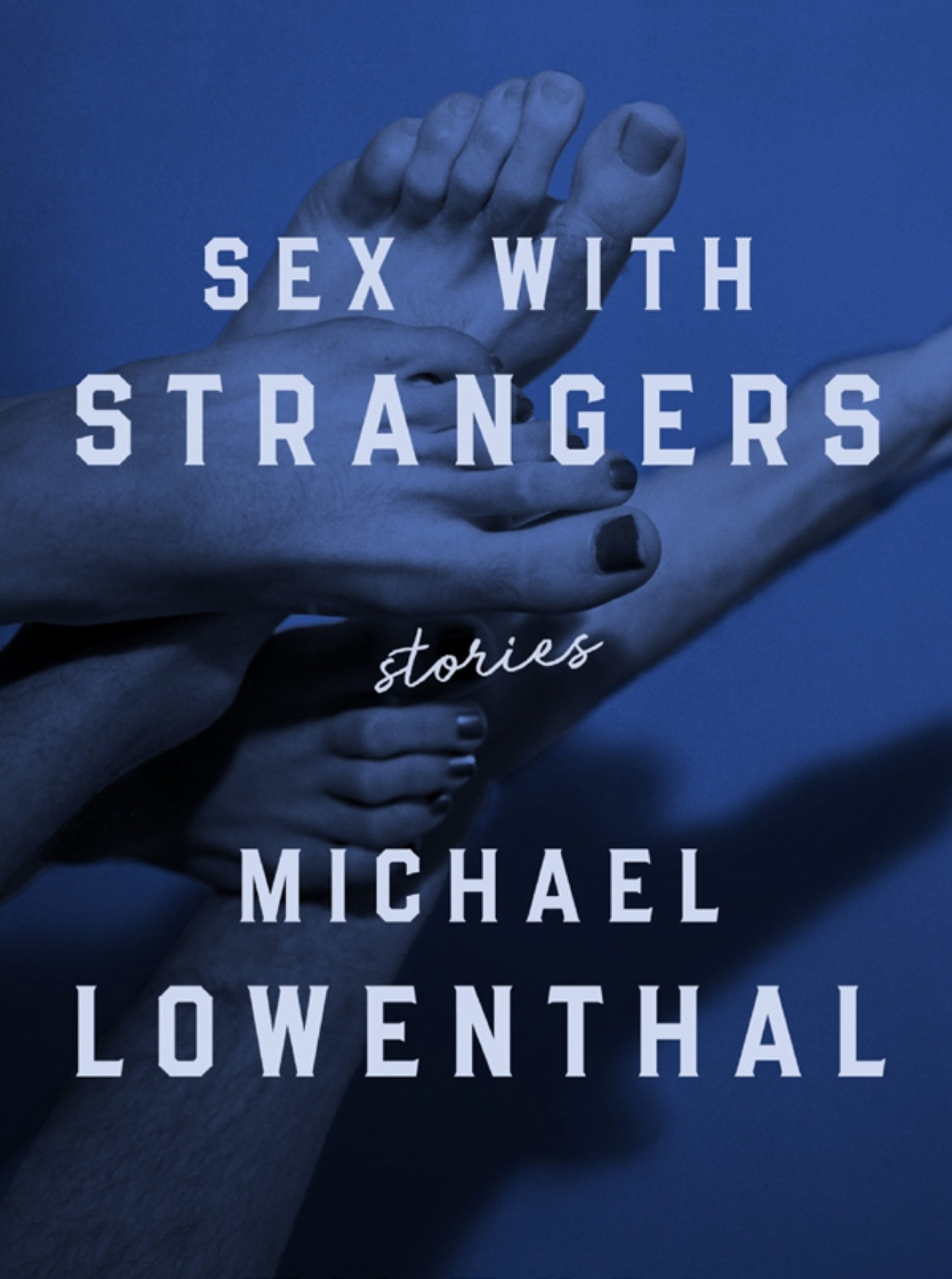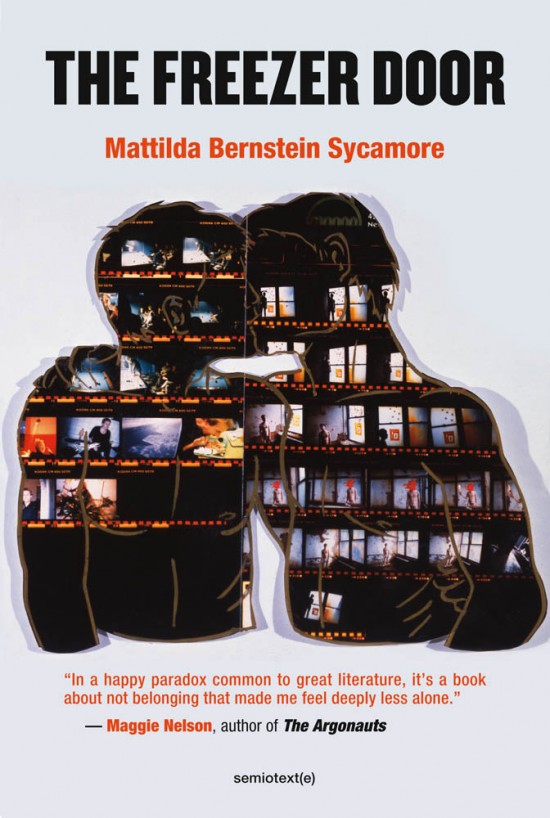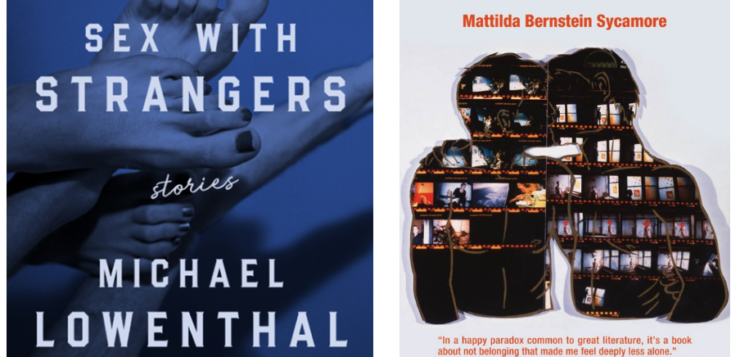AT OUTWRITE 1995, the queer writers’ conference in Boston, an unlikely but lasting friendship was born. Mattilda was a 21-year-old genderblur club kid with a history of radical organizing who felt trapped in Boston except when the Ecstasy hit at 2 a.m. Michael was a 25-year-old former Dartmouth College Woodsmen Team competitor who had recently moved from New Hampshire to Boston, where he edited erotic anthologies to bankroll his attempts to write literary fiction. They struck up a flirtatious, opposites-attract conversation about writing and sex—and writing about sex—a conversation that eventually led them to vegan Chinese food and a visit to the Pilgrim Theater, a grand old movie palace from the 1910s that projected straight porn onto its massive screen overlooking the legendary gay cruising that took place in the aisles and in the seats.
Twenty-six years later, the Pilgrim is long gone—razed to make way for luxury condos—but Mattilda and Michael have both built successful careers as writers. Mattilda, who now lives in Seattle, is the author of three novels and two nonfiction titles, and is the editor of five nonfiction anthologies. Her memoir, The End of San Francisco, won a Lambda Literary Award; her novel Sketchtasy was one of NPR’s Best Books of 2018; and her sixth anthology, Between Certain Death and a Possible Future: Queer Writing on Growing Up with the AIDS Crisis, will be out in October. Michael, who stayed in Boston, is the author of four novels: The Same Embrace; Avoidance; Charity Girl (a Washington Post “Top Fiction of 2007” pick); and The Paternity Test (a Lambda finalist). He has taught at Boston College and Hampshire College, and for eighteen years has been a core faculty member of the MFA in Creative Writing program at Lesley University.
This season, they both have new books out. Mattilda’s is The Freezer Door, a lyric essay that was named a New York Times Editors’ Choice. Michael’s is Sex with Strangers, a short story collection, which The New York Times Book Review says is “studded with memorable flashes of brilliant writing and stunning details.” After all these years, and despite the continent between them, Mattilda and Michael still love to talk. Recently, Michael set up a Zoom session, which Mattilda called into using a landline, and they chatted about their new projects and a wide range of other topics.
 Michael Lowenthal: I want to start by talking about the pandemic. I would say both of our books are about loneliness and yearning for connection, and how that plays out in terms of sex and hookups and relationships, and the pandemic, of course, has taken a huge toll on those activities. In some ways, your book almost seems predictive. I mean, right at the very start, you say: “I remember when faggots kissed hello. We had so much to fear and so we feared nothing.” That line was written before the pandemic, obviously, but it has such a different resonance now, as does your whole project, really, and I’m wondering, how has it been, having this particular book come out in the pandemic? How do you think that’s affected how people have responded?
Michael Lowenthal: I want to start by talking about the pandemic. I would say both of our books are about loneliness and yearning for connection, and how that plays out in terms of sex and hookups and relationships, and the pandemic, of course, has taken a huge toll on those activities. In some ways, your book almost seems predictive. I mean, right at the very start, you say: “I remember when faggots kissed hello. We had so much to fear and so we feared nothing.” That line was written before the pandemic, obviously, but it has such a different resonance now, as does your whole project, really, and I’m wondering, how has it been, having this particular book come out in the pandemic? How do you think that’s affected how people have responded?
 Mattilda Bernstein Sycamore: I wrote The Freezer Door in what I considered the present, and I expected it to come out in a somewhat similar time, and then, one year ago, everything changed. But just before the book came out in November, people were starting to tell me that it was so relevant to this particular moment, and, honestly, I didn’t know what they were talking about. And then it came out, and I think the themes of loneliness and alienation and trying to find connection in a gentrified city that forecloses the possibilities of public space, but there’s always that yearning anyway—all of this has really resonated with people, I think, in a wider way than it would have otherwise. This pandemic has taught people that we’re all lonely and alienated, right?
Mattilda Bernstein Sycamore: I wrote The Freezer Door in what I considered the present, and I expected it to come out in a somewhat similar time, and then, one year ago, everything changed. But just before the book came out in November, people were starting to tell me that it was so relevant to this particular moment, and, honestly, I didn’t know what they were talking about. And then it came out, and I think the themes of loneliness and alienation and trying to find connection in a gentrified city that forecloses the possibilities of public space, but there’s always that yearning anyway—all of this has really resonated with people, I think, in a wider way than it would have otherwise. This pandemic has taught people that we’re all lonely and alienated, right?







